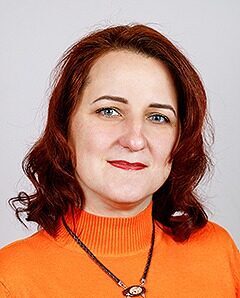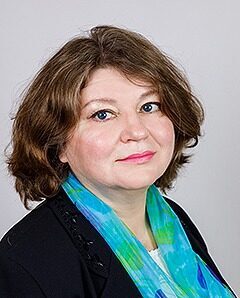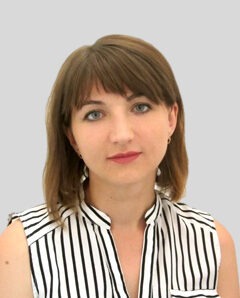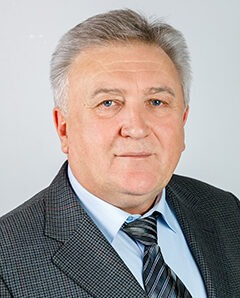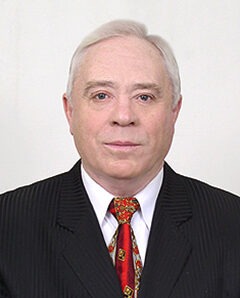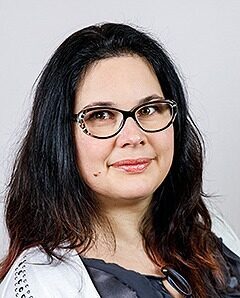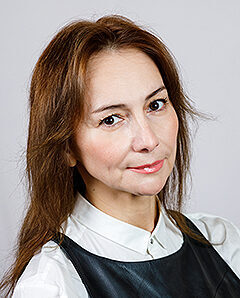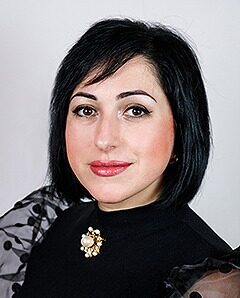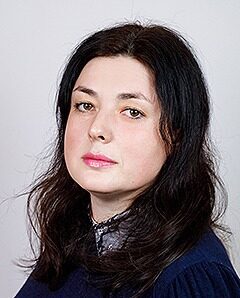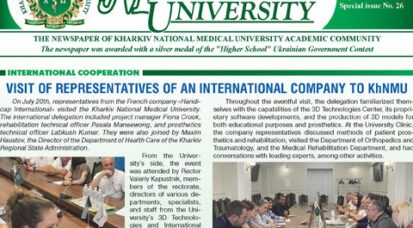About us
The Department of Hygiene and Ecology №1 of Kharkiv National Medical University was founded on February 1, 1873. The main activities of the department include teaching, research and methodological work.
At the Department of Hygiene and Ecology №1 the educational process takes place at the following educational levels:
• Higher medical education: 1) applicants for higher education 2nd course on specialty “Dentistry” and also 2-3 courses I-VII medical faculty for specialty “Medicine” taught discipline “Hygiene and Environment” Ukrainian, Russian and English languages; 2) for applicants for higher education 2-3 courses, which study on specialty “Pediatrics” taught discipline “Hygiene and Ecology with hygiene of child and adolescent age” Ukrainian language.
• bachelor’s degree in the following specialties: 1) “Physical therapy and occupational therapy” (discipline “Hygiene and basics of ecology”); 2) “Technology of medical diagnostics and treatment” (discipline “Hygiene and ecology with hygienic examination”). Courses are taught in Ukrainian language.
• Master’s degree in “Technology of medical diagnostics and treatment” (discipline “Sanitary and hygienic examination”), “Public Health”. Courses are taught in Ukrainian language.
The Department of Hygiene and Ecology №1 also conducts thematic improvement of doctors from the “Mental Health: hygienic prenosological diagnosis and primary prevention of mental disorders.”
Teachers of the Department of Hygiene and Ecology №1 take an active part in the medical and preventive work of the university. The Department of Hygiene and Ecology №1 conducts purposeful educational and medical and preventive work on the problems of environmental education of higher education. The teachers of the department regularly read out for classroom lectures and conversations for the purpose of popularization of healthy life for students. Teachers of the department are active promotion of healthy behavior and prevention of stress among workers of medical field.
- History of the department
- Educational process
- Scientific Activity
- International Activity
- Postgraduate education
The Department of General Hygiene at Kharkiv University was founded at the Medical Faculty on February 1, 1873 and is one of the oldest. The founder and first head of the department A.I. Jacobiy (1827-1907) called his lectures, which were given at that time to students of Kharkiv University “Course of Public Hygiene”. The following list and content of the course of lectures convincingly testifies to a wide range of scientific, pedagogical and medical issues, which A.I. Jakobiy devoted considerable attention to:
1. Waste materials and their removal.
2. History of development of sanitary establishments.
3. Soil.
4. Climate.
5. Ventilation.
6. Artificial climate, housing.
7. Food.
8. Fasting.
9. Water supply.
10. Biology of the population.
11. Places of imprisonment.
12. Diseases from spoiled air.
13. School.
14. Training.
15. Disinfection.
16. Construction of the hospital.
17. Epidemics.
18. Sexual activity.
All of them were read at a high scientific level for that time.
Due to the purposeful activities of AI Jacobiy’s course of hygiene at Kharkiv University was formed as an independent subject of teaching, science and medicine.
Before the organization of an independent department of hygiene, the discipline was taught at other departments.
Since 1873 department was headed by Professor A.I. Yakobiy – 1873-1885 years; Professor I.P. Skvortsov – 1885-1905; Professor I.I. Kiyanytsyn – 1905-1908; Professor S.V. Korshun – 1908-1917; Professor J.M. Zilber – 1918-1922; Professor A.A. Tsvetaev – 1923-1925; Professor V.O. Uglov – 1927-1930; Professor V.O. Yakovenko – 1930-1941; Professor Z.D. Gorkin – 1941-1945; Professor M.L. Koshkin – 1945-1965; Professor M.P. Vorontsov – 1965-2002; Professor V.O. Korobchansky – since 2002.
The department prepares applicants of higher education of professional programs “Medicine” and “Dentistry” – educational components (subjects) “Hygiene and Ecology”; for EPP “Pediatrics” the discipline “Hygiene and ecology with hygiene of children and teenagers” is taught; for EPP “Physical therapy and ergotherapy” – “Hygiene and fundamentals of ecology”; for OPP “Technology of medical diagnostics and treatment” – “Hygiene and ecology with hygienic examination” and “Sanitary and hygienic examination”; for OPP “Public Health” obligatory disciplines “Prevention. Valeology”, “Psychology of work” and elective disciplines “Medicine of borderline conditions and prevention of non-epidemic diseases”, “Psychohygiene: pre-nosological psychodiagnostics and prevention of mental disorders”. Also, for students at OPP “Medicine” and “Pediatrics” is taught “Military Hygiene”, which is part of the educational component “Military Medical Training”.
Modern training methods are widely used in the training of students at the department. Lectures are conducted using multimedia presentations and videos. The practical classes use business games, web-quests and cases as close as possible to real conditions, which allow students to feel themselves a direct participant of the situation.
In the 2020 year for practical training of students developed a presentation step by step illustration of basic laboratory researches, and a detailed description of each stage of the experiment, as well as instructional videos that students can look in the classroom or on YouTube channel of the department.
During the last 5 years department published 13 methodological guidelines, took part in the writing of two books.
The department conducts full-scale experimental research in the field of psychohygiene and psychophysiology of youth: internal hygiene of secondary schools and institutions of different levels of accreditation and psychohygiene training; psychohygiene and social rehabilitation of children with disabilities with sensory system defects; hygienic aspects of life of socially maladapted youth. There are also researches in the field of theoretical medicine, namely: methodological bases of medicine of borderline states, pre-nosological psychodiagnostics, primary psychoprophylaxis of mental and somatic health disorders of children and adolescents of different social groups and populations; medical aspects of evidence-based medicine and bioethics; hygienic and ecological aspects of the systemogenesis of life. Methodological researches both on an estimation and improvement of professional preparation of doctors, and in the field of scientific creativity pass.
In 2020-2021 academic year the implementation of a new research work on the topic “Psychohygienic foundations of life safety of students of higher education in conditions of epidemic.”
During the last 5 years, the department has defended 5 dissertations for the degree of Candidate of Medical Sciences: Svitlichny S.Yu. “Psychohygiene of vocational training of adolescents with a reduced level of social adaptation”, Bogachova O.S. “Hygienic assessment and optimization of learning conditions in professional agricultural lyceums”, Grigoryan O.V. “Substantiation of methodical approaches to psychophysiological selection of industrial workers at work with increased danger”, Sasina O.S. “Psychohygiene training of adolescents with disabilities with pathology of the visual organ”, Sarkis-Ivanova V.V. “Influence of certain physical factors and antibiotics on the biological properties of Pseudomonas aeruginos”. Thesis for the degree of Doctor of Medicine on the topic “Substantiation of the system of hygienic pre-nosological diagnosis and prevention of allergic diseases in children” is carried out by Staruseva V.V.
Also during this period received 2 patents, 1 copyright certificate, issued 6 scientific works and 1 monograph “Medicine extreme conditions: 30-year experience psychohygienic research” Ed. V.M. Lisovy, V.O. Korobchansky; published 377 articles and abstracts in the collections of scientific-practical and scientific-methodical conferences.
The Department of Hygiene and Ecology №1 regularly holds interdepartmental scientific-practical conferences “Current issues and prospects for the development of hygiene as a modern science” and “Borderline medicine: theory and practice of pre-nosological diagnosis, treatment and prevention of occupational diseases”.
Teachers of the department regularly undergo scientific internships abroad.
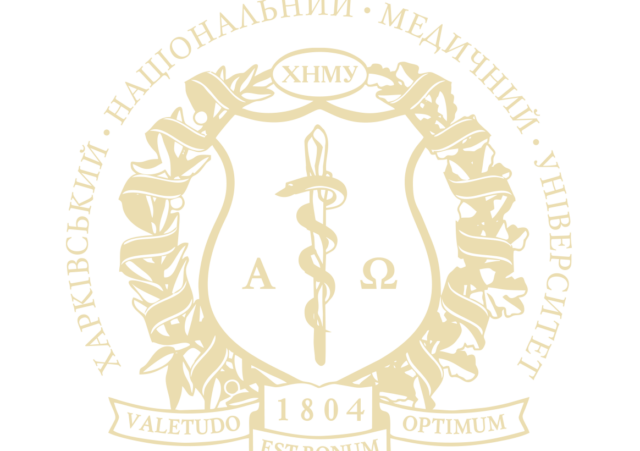
The department conducts thematic improvement of doctors of different specialties from the cycle “Psychohygiene: hygienic pre-nosological diagnosis and primary prevention of mental disorders.”
Leader student society: Mokriakova Marina – Assistant
Members of the society: students of 2-5 courses. The composition is updated periodically.
Format: meeting once a month at the department or online on Zoom. Also, for a more convenient exchange of information between the members of the society and teachers, a group of society in Viber was created.
At the meetings the teacher acquaints students with modern aspects of hygiene and ecology, the latest trends in psychohygiene. Students give mini-presentations based on the results of their researches. After the speeches, the reports are discussed. Students also regularly publish the results of their own research, conducted under the guidance of a teacher, in collections of abstracts and professional periodicals.

